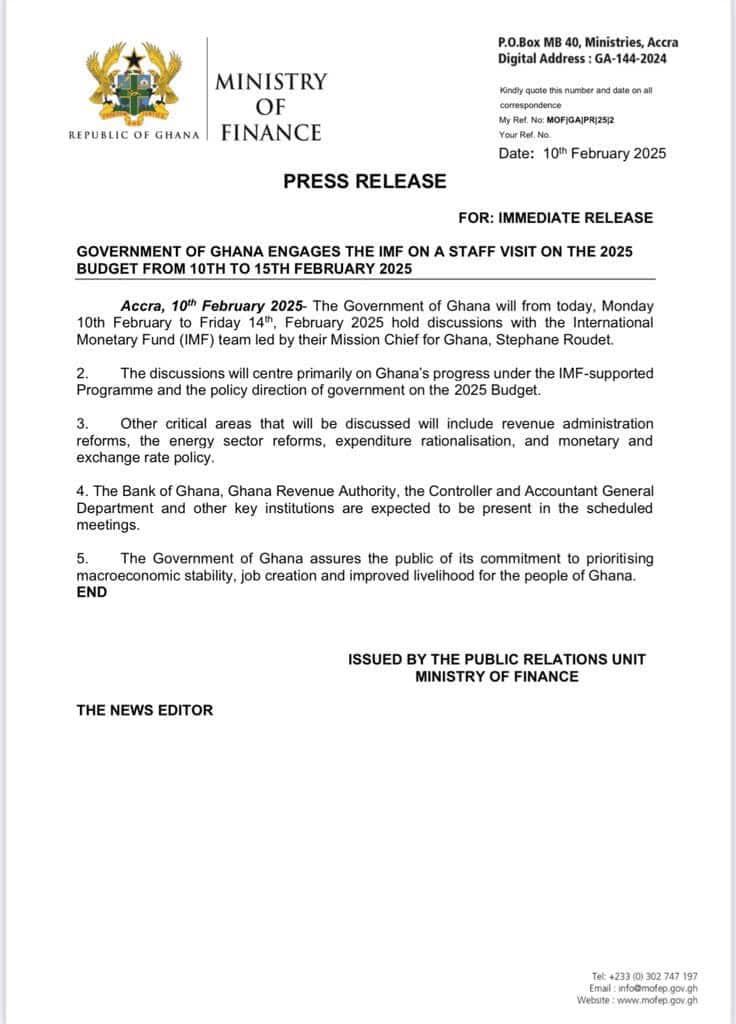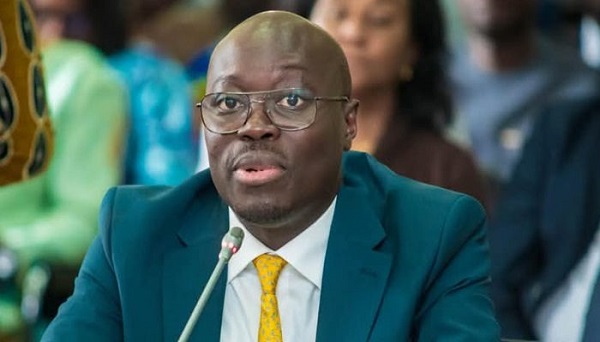The International Monetary Fund (IMF) is set to begin critical discussions with the government of Ghana this week as the country finalises its 2025 budget which is scheduled for presentation in March.
The negotiations come at a crucial juncture, with the government planning to eliminate several contentious tax measures, including the electronic levy (E-levy), betting tax, and COVID-19 levy.
These revenue-raising mechanisms, introduced by the previous administration, have been widely criticised by businesses and consumers alike.
As part of its $3 billion Extended Credit Facility (ECF) programme, Ghana remains under IMF oversight, with the Fund expected to scrutinise the fiscal implications of the proposed tax cuts. The IMF will seek assurances that revenue losses from the removal of these levies will not compromise fiscal consolidation efforts or derail the country’s economic recovery.

Beyond revenue concerns, discussions are expected to focus on Ghana’s mounting energy sector liabilities, which exceed $2 billion. The financial strain on Independent Power Producers (IPPs) has raised fears of supply disruptions, while the government’s foreign exchange obligations to energy firms have intensified pressure on the cedi.
The IMF is likely to press for structural reforms to improve cost recovery in the energy sector and enhance financial sustainability. In response, the government is expected to outline a roadmap detailing how it intends to offset revenue losses, resolve energy sector debts, and maintain macroeconomic stability while proceeding with tax reforms.
Investors, businesses, and multilateral partners will closely monitor the outcome of the talks, as Ghana seeks to navigate a delicate balance between fiscal discipline, economic growth, and energy sector stability.





